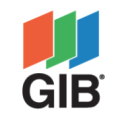
Opinion piece by Julien Leys, Chief Executive of the Building Industry Federation
With Parliament due to go into recess for the election and submissions completed for the Building (Building Products and Methods, Modular Components and other matters) Amendment Bill (the Bill), the issue will be what and how MBIE officials deal with the points made and how this translates into a revised draft piece of legislation. While the draft Bill included nothing on a building product register (including a separate critical building products register), the building supply chain has long been a champion to see this as a critical part of any reform of the Building Act?
There is a clear need for a digital library for all building products. The risks associated with non-conforming building products were also highlighted in 2017 by the deadly Grenfell Tower fire in London and Melbourne Dockland’s Lacrosse Building fire in 2014. The rates of non-conforming products and materials have become increasingly common since the Christchurch and Kaikoura earthquakes due to higher rates of importation, fraudulent certification documents, and the difficulty of being able to genuinely certify that a product meets the New Zealand Building Code.
BRANZ conservatively estimated that product assurance gaps linked to non-conforming product costs $232M every year. In addition, MBIE estimated that the average product information gap costs $3,000 per consent and Page (2016) found that 30% of consents had information gaps.
The GS1 / BRANZ Industry-led study (Digital Product Data for lifting productivity in the building and construction sector) is looking at a range of best practice solutions including work in the European Union where international standards data is stored in organised structures called Data Templates (a common data structure). The methodology to create Data Templates is under development within the European Standards Body, CEN, and are being billed as the pillars of interoperability as they set out common formats, structures, concepts and relations for data effective and efficient exchange.
In 2019 NATSPEC, a not-for-profit, Government- and industry-owned Australian organisation, with the key aim of improving construction quality established the National Construction Product Register (NCPR). NCPR is designed to ensure quality control and reduce the risks associated with products that do not conform to Australian Standards. It is a freely available, searchable online public database that brings important information about the conformity and suitability of building products and materials together in one place for architects and other building professionals.
The Building Industry Federation calls on the Government and industry to work together to ensure New Zealand has a similar product register for its building and construction sector which is the gold standard way of ensuring comprehensive assurance and standards.










